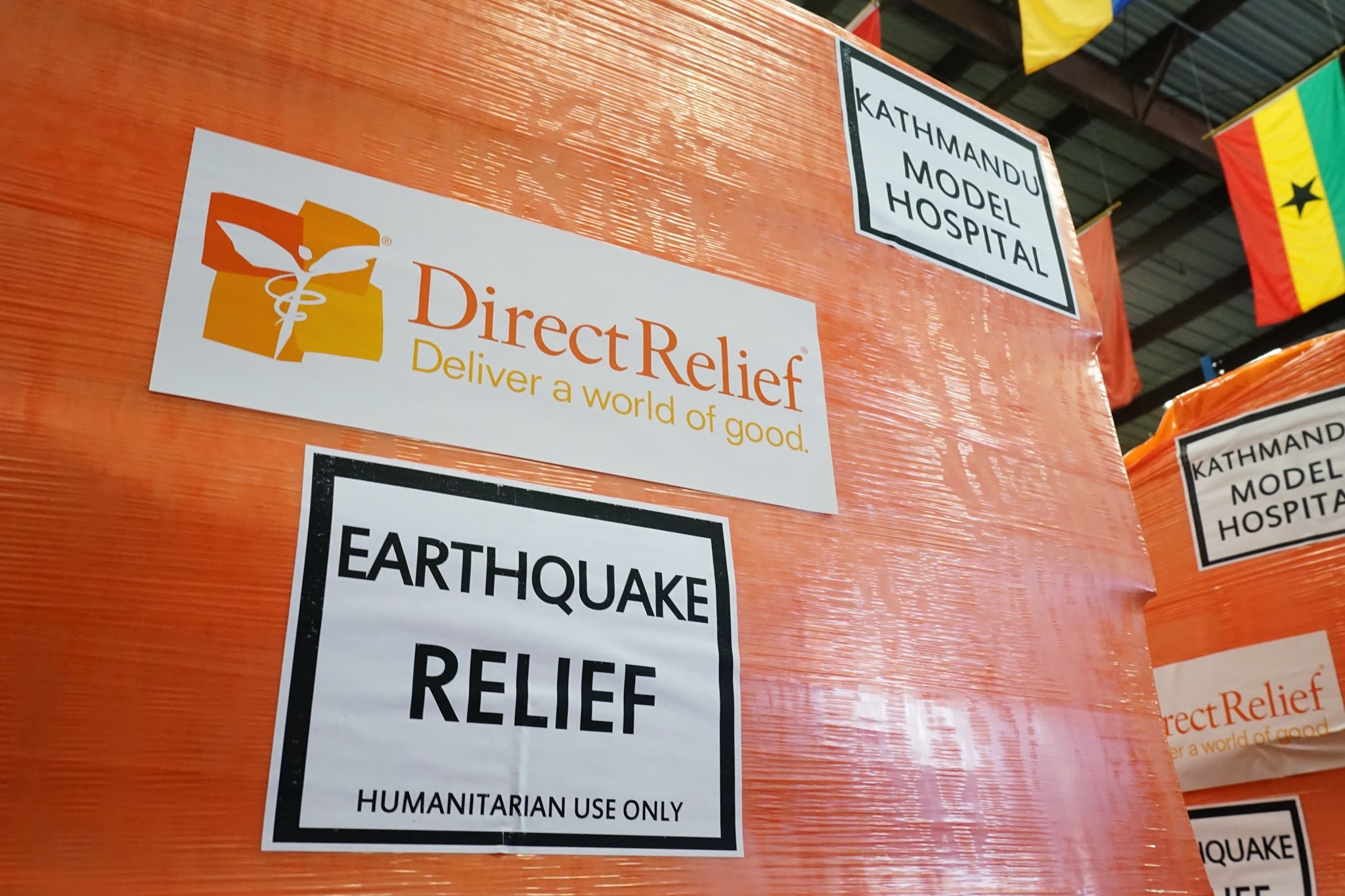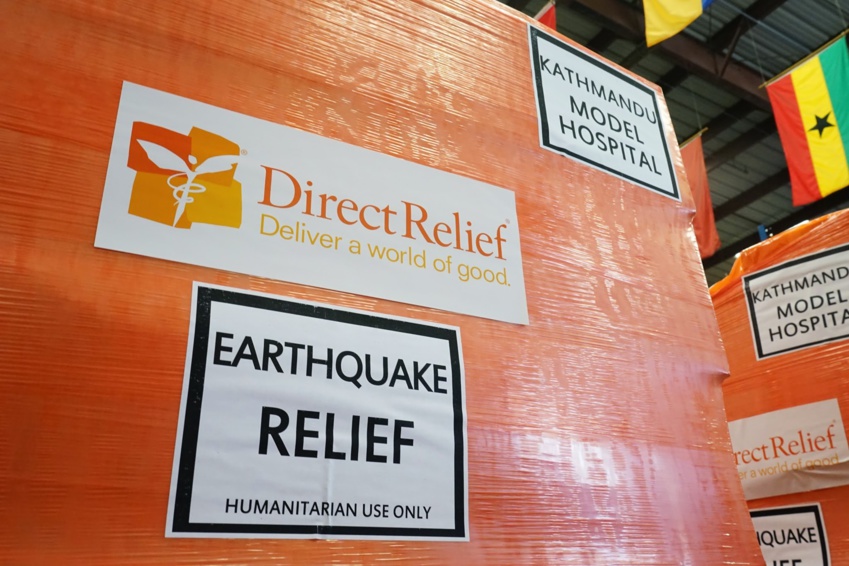Direct Relief increased its financial commitment to $3 million today in response to the deadly 7.8-magnitude earthquake that struck Syria and Turkey on Monday morning. Direct Relief pledged $200,000 earlier this week, including $100,000 to AKUT, Turkey's leading search and rescue team with over 400 staff and volunteers, and $100,000 to the Syrian American Medical Society, which operates health facilities in northwest Syria treating earthquake victims.
The increased funding commitment is made possible by the spontaneous outpouring of public support that occurred this week, including over 4,500 online contributions from more than 70 countries and all 50 U.S. states via Direct Relief's website, as well as pledges made by several corporations.
“The massive scale of destruction, tragic loss of life, and enormous needs and ongoing threats that arose in the course of a few moments this week call for a response that is commensurate with the circumstances,” said Thomas Tighe, Direct Relief’s President and CEO.
“The actions of private people and businesses around the world to participate in the assistance effort help enormously and are inspiring to see.”
Direct Relief's emergency response strategy is two-pronged, with financial assistance to supplement immediate rescue efforts and medical supplies to support stressed health facilities in the region. On February 8, a shipment of more than nine tons of requested medical supplies, including 100 field medic packs for triage care, left Direct Relief's warehouse for multiple organizations in the region, including the Syrian American Medical Society, Syrian Relief and Development, and the Independent Doctor's Association.
More medical aid shipments, including antibiotics, wound care dressings, protective gear, and other requested medical resources, are scheduled to leave Direct Relief warehouses in the United States and the Netherlands. The region has a large population of internally displaced people and refugees who are especially vulnerable to disaster and the effects of disrupted power, health services, food and water access, and limited shelter. There are numerous health concerns in the initial phase of the response. Without proper care, crush injuries and wounds can result in severe infections. Airborne particulates and debris can aggravate or worsen respiratory and ocular conditions.
Contaminated water can cause gastrointestinal illness and spark or exacerbate cholera outbreaks, such as the one that has infected tens of thousands in Syria over the last year. Before the earthquake, cardiovascular, kidney, and respiratory diseases, as well as diabetes, were among the leading causes of death in Turkey and Syria. Acute medical needs in the coming days and weeks are likely to include medications for chronic diseases, without which someone who relies on them could quickly find themselves in a crisis.
Aside from infrastructure damage and population displacement, which prevent people from accessing medication, power outages frequently jeopardize the integrity of cold-chain drugs while reducing the ability to communicate with providers. Access to pharmacies and other medication refill channels will be hampered due to transportation constraints and infrastructure damage.
Direct Relief is working to secure and deliver large amounts of diabetes, cardiovascular, asthma, and other chronic disease medications in response. Direct Relief is estimating potential quantities needed based on baseline disease rates in Turkey and Syria prior to the earthquake: hypertension 30-40%, diabetes 14-15%, and epilepsy 0.5-1.4%.
The organization will continue to respond for as long as its services are required, with the help of individuals and businesses whose contributions fuel Direct Relief's humanitarian efforts.
The increased funding commitment is made possible by the spontaneous outpouring of public support that occurred this week, including over 4,500 online contributions from more than 70 countries and all 50 U.S. states via Direct Relief's website, as well as pledges made by several corporations.
“The massive scale of destruction, tragic loss of life, and enormous needs and ongoing threats that arose in the course of a few moments this week call for a response that is commensurate with the circumstances,” said Thomas Tighe, Direct Relief’s President and CEO.
“The actions of private people and businesses around the world to participate in the assistance effort help enormously and are inspiring to see.”
Direct Relief's emergency response strategy is two-pronged, with financial assistance to supplement immediate rescue efforts and medical supplies to support stressed health facilities in the region. On February 8, a shipment of more than nine tons of requested medical supplies, including 100 field medic packs for triage care, left Direct Relief's warehouse for multiple organizations in the region, including the Syrian American Medical Society, Syrian Relief and Development, and the Independent Doctor's Association.
More medical aid shipments, including antibiotics, wound care dressings, protective gear, and other requested medical resources, are scheduled to leave Direct Relief warehouses in the United States and the Netherlands. The region has a large population of internally displaced people and refugees who are especially vulnerable to disaster and the effects of disrupted power, health services, food and water access, and limited shelter. There are numerous health concerns in the initial phase of the response. Without proper care, crush injuries and wounds can result in severe infections. Airborne particulates and debris can aggravate or worsen respiratory and ocular conditions.
Contaminated water can cause gastrointestinal illness and spark or exacerbate cholera outbreaks, such as the one that has infected tens of thousands in Syria over the last year. Before the earthquake, cardiovascular, kidney, and respiratory diseases, as well as diabetes, were among the leading causes of death in Turkey and Syria. Acute medical needs in the coming days and weeks are likely to include medications for chronic diseases, without which someone who relies on them could quickly find themselves in a crisis.
Aside from infrastructure damage and population displacement, which prevent people from accessing medication, power outages frequently jeopardize the integrity of cold-chain drugs while reducing the ability to communicate with providers. Access to pharmacies and other medication refill channels will be hampered due to transportation constraints and infrastructure damage.
Direct Relief is working to secure and deliver large amounts of diabetes, cardiovascular, asthma, and other chronic disease medications in response. Direct Relief is estimating potential quantities needed based on baseline disease rates in Turkey and Syria prior to the earthquake: hypertension 30-40%, diabetes 14-15%, and epilepsy 0.5-1.4%.
The organization will continue to respond for as long as its services are required, with the help of individuals and businesses whose contributions fuel Direct Relief's humanitarian efforts.


 Direct Relief increased financial commitment to $3 million towards earthquake relief in Syria and Turkey
Direct Relief increased financial commitment to $3 million towards earthquake relief in Syria and Turkey





 Companies
Companies